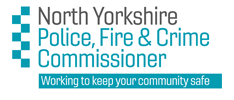|
||||
|
||||
|
|
||||
|
Did you know the Domestic Violence Disclosure Scheme, also known as Clare’s Law, gives you the right to ask about a partner, or ex-partner’s previous history of offending?
The scheme sets out what the police can disclose about someone’s previous violent or abusive offending, emotional abuse, controlling or coercive behaviour, or financial abuse, where this may help protect their partner or ex-partner and any connected children.
We’re aware that there is incorrect information online about the scheme and we hope the following myth-busters will help explain how it works ⬇
Some common misconceptions ⬇
❌ Myth: Clare’s Law (DVDS) is a register of domestic abuse perpetrators. I can contact Police to check if someone is on the register, or to get them to added to the register. No such register exists. When a request is received, checks are completed and collated from police systems to ensure information is up to date. Every request is different.
❌ Myth: I can request information about a friend, employee, housemate, or someone I think has contact with my children through the scheme. Information can only be shared with current, potential or ex-partners. If you have concerns for involved children but you do not fall into this category, please speak to Social Care for advice and guidance. See also the Child Sex Offenders Disclosure scheme if you are concerned about a child who may have contact with a possible sex offender.
❌ Myth: All types of crime can be shared under Clare’s Law (DVDS) Information shared under this scheme focuses on violent or abusive offending, including things such as controlling and coercive behaviour, stalking or harassment. We can only share information that is pertinent to the risk and which will assist in keeping the person receiving it safe. If there is no information to share under the scheme, that does not mean that someone does not have a criminal history. Also, we know that Domestic Abuse is under-reported, therefore just because there is no information to share does not mean someone has not previously been abusive, as it may not have been reported.
❌ Myth: I can share information I receive with friends or family, or discuss the disclosure with them. You will be asked to sign an undertaking before hearing any information which states that it cannot be shared with anyone. It is appreciated that many times a lot of the information that is shared will be hard-hitting or emotional. Support, signposting and any referrals needed to help you will be offered at any appointment.
❌ Myth: I can take the disclosure away with me at any appointment. Information is shared verbally. You will not be provided with any paperwork containing any shared information.
❌ Myth: Clare’s Law (DVDS) is only for women. Anyone can apply for information under Clare’s Law. It’s absolutely not gender restrictive, nor is it for heterosexual people only, and we would encourage anyone to make an application if they have concerns for their relationship, or even if they have concerns about a potential partner before taking the next steps in a relationship.
❌ Myth: I can use information as part of applications to Court, for example for a Non-Molestation Order. Information disclosed under the scheme cannot be used in court proceedings. Our Civil Disclosure Team are able to advise you if this is your intention.
❓ How do I make a request under the scheme? Requests can be submitted online via Request information under Clare's Law: Make a Domestic Violence Disclosure Scheme (DVDS) application | North Yorkshire Police, or by calling 101 or going to your local police station. You can submit a request for yourself about a current, potential or ex-partner. You can also submit a request on behalf of another if you have concerns for their relationship, however, you have no entitlement to the information given, as it will only be shared with the person at risk.
❓ What will happen? You will be contacted within 10 days of making your request with details of the scheme, timescales and any relevant signposting to support agencies as necessary. You may then be invited to an appointment to discuss your request.
Your right to know… The scheme also gives the police the power to tell you, even if you have not asked, if they become aware that you may be at risk from a partner or ex-partner.
| ||||
Reply to this message | ||||
|
||||
|
|
|







